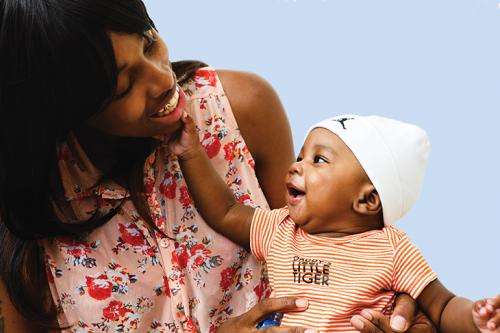Can strong parental bond protect infants down to their DNA?

Tulane University psychiatrist Dr. Stacy Drury received $2.4 million from the National Institutes of Health to test a provocative new theory: how well children bond with a parent in the first year of life leaves lasting genetic protection, potentially shielding them from disease risks well into adulthood.
Drury, a geneticist, is a pioneer in new research exploring the biological impacts of early adversity on children. She is the first scientist to show that extreme stress in infancy can biologically age a child by shortening the tips of chromosomes, known as telomeres. These caps keep chromosomes from shrinking when cells replicate. Shorter telomeres are linked to higher risks for heart disease, cognitive decline, diabetes and mental illness in adults.
"Telomeres are clearly a marker of the aging process, but they are increasingly being linked to stress," says Drury, associate professor of psychiatry and behavioral sciences and director of the Behavioral and Neurodevelopmental Genetics Laboratory at Tulane University School of Medicine.
"What this suggests is that we have a marker that is in a cell that is sort of tracking the lasting impact of these negative early life experiences."
She and Tulane scientists are recruiting 500 pregnant women to see if a responsive and sensitive parental bond can create a "biological buffer" in children that protects against telomere shortening and toxic stress.
The Tulane Infant Development Study will be the first to document what happens physiologically before and after infants develop "attachment," the all-important bond with mothers or primary caregivers. More than 140 expectant mothers are enrolled. Researchers are working with area clinics and social service agencies to recruit participants during the next five years.
"If I just need to really strengthen that (parenting) relationship for the first six months of life," Drury says, "and that is going to improve health outcomes for decades—that's an easy sell, right?"


















